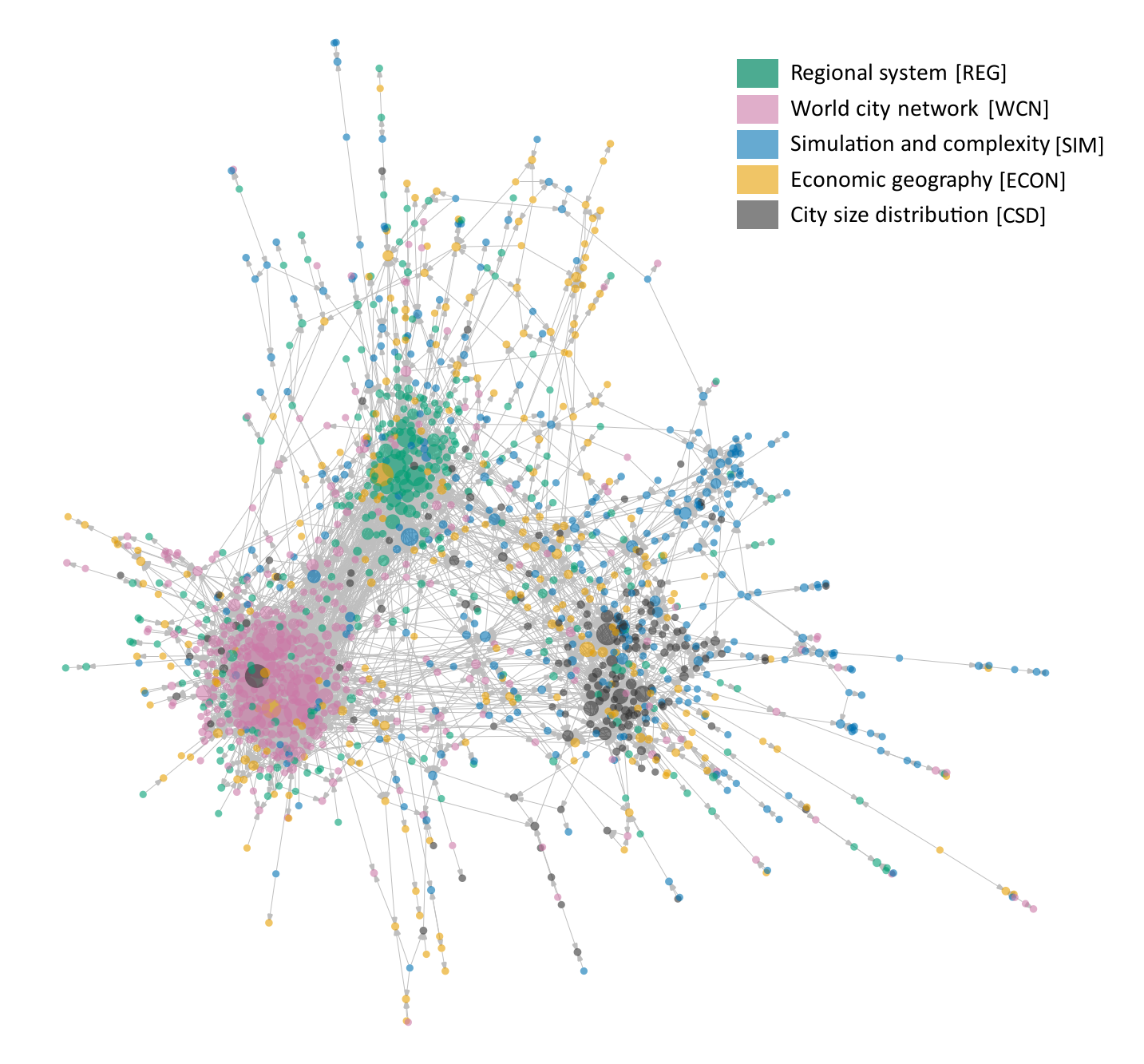Beyond Agglomerations
Mapping externality fields and network externalitie
Small and medium-sized European cities are performing increasingly well, even though conventional agglomeration theory suggests that the agglomeration benefits of large cities are the primary economic drivers in the world, steering urban and economic growth towards the largest cities and metropoles.

To solve this discrepancy between theory and reality, this project aims to challenge and recast the geographical foundations of agglomeration theory. This project explores the hypothesis that small and medium-sized cities are able to ‘borrow size’ through being proximate to other cities and/or through being connected in networks with other cities. This means that urbanisation economies are not confined to individual agglomerations –as is the long-standing and unquestioned assumption. Rather, they transform spatially into ‘urban externality fields’ and/or ‘urban network externalities’. The project focuses particularly on the role of ICT in this transformation and on new ways of measuring networks of cities.
Facts
| Funder: | NWO - Netherlands Organisation for Scientific research |
| Programme: | VIDI grant Vernieuwingsimpuls/ Innovational Research Scheme |
| Overall budget: | € 906.898 |
| Grant amount: | € 800.000 Contribution to TU Delft: € 800.000 |
| Grant number: | 452-14-004 |
| Role TU Delft: | Host institution (personal grant) |
| Project duration: | November 2015 - November 2020 |
| TU Delft researchers: | Dr. Evert Meijers Dr. Rodrigo Cardoso Duco de Vos Antoine Peris |
